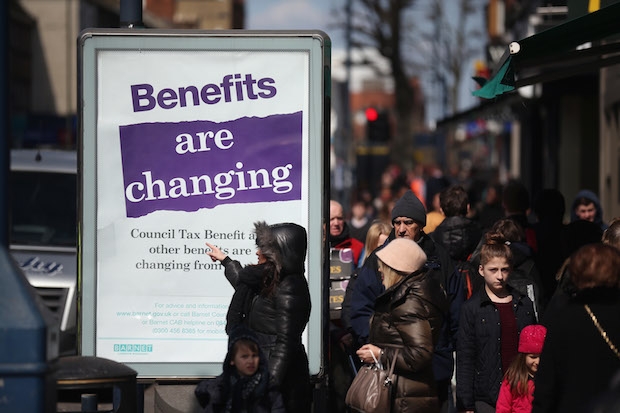One of the government’s big achievements has been helping people off benefits and back into work. But the latest stage in the reforms – the proposed changes to the Employment and Support Allowance (ESA) – would be a mistake. Far from encouraging sick people back to work, it might encourage them to stay on benefits. That’s why I’m proposing a change to the Welfare Reform and Work Bill.
At the moment, ill people who might gradually return to work receive the Work Related Activity Group (WRAG) payment of £102.15. This is a little bit higher than the standard Job Seekers’ Allowance (JSA): the extra money pays for the additional costs which hit people with long-term illnesses – higher energy bills, for instance.
Some of those on the WRAG receive the Disability Living Allowance, now being replaced by the Personal Independence Payment. But slightly over half do not. If the proposed reforms go through, then from April 2017 they will simply lose their additional financial support. It will be replaced by a package of non-financial support – as yet unspecified – to help them back into work.
I agree that a change is needed; and we should certainly be trying to help people back into work more quickly. But has the full impact of the proposals been thought through? The extra WRAG money is there for a reason. Being confronted with a potentially life-changing illness is difficult enough; the damage it can cause to family finances is often totally unexpected.
By stopping altogether the supplement for those coming into the WRAG from April 2017, I argue that it may well become harder for them to get back to work. It may also therefore result in more people coming into the ‘Support Group’ as this would allow them the higher Support Group payment. So the reforms could backfire as those in the Support Group are not expected to be working towards a return to work in the same way as those in the WRAG.
At the Report Stage of the Bill in the House of Commons, I proposed an amendment that the full impact of the Government’s proposals be considered before any change is made. I hope that the Government and the House of Lords will consider this.
I believe we also need to make much clearer to citizens what they can and cannot expect from the welfare state. Many constituents tell me they cannot understand why there is so little support for them in their illness when ‘I have been paying National Insurance all my life’. Alongside education and transparency about benefits, it makes sense to encourage people to make additional provision for difficult times.
Income protection insurance can be good value when taken out young. We could also consider a tax-free Lifetime Savings Account, which could only be drawn down in the case of a major crisis, such as serious illness or unemployment. On retirement, any balance could become part of your pension pot.
The Government’s aim to help as many people as possible back into work is absolutely right. It has made good progress on this. However, the proposed removal of the entire supplement for those receiving ESA WRAG needs to be looked at again. It may well have the opposite effect of what the Government intends. It will certainly increase the burden on people who are already coping with serious illness or disability.
Jeremy Lefroy is the Conservative MP for Stafford.






Comments